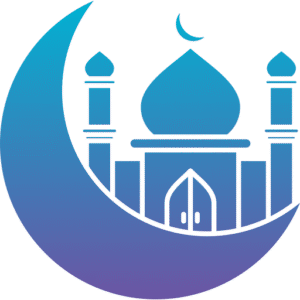Self-Improvement and Preparations for the Future Success of Myanmar Muslims
Part 5: Overcoming Fear, Embracing Hope — The Path Forward for Myanmar Muslims
As Daw Aung San Suu Kyi rightly noted, fear is our worst enemy — not just for Muslims, but for all races and religions in Myanmar. Fear of extinction, dominance, or cultural erasure has divided us. Like fearing shadows in the dark, unless we confront it with understanding, that fear will remain.
Western media has often portrayed Muslims unfairly, fostering suspicion and prejudice. It is our duty to reshape that image — not with loud words, but with our actions: kindness, cooperation, and community service.
We must build bridges with our Buddhist brothers and sisters — even monks. Many have historically stood by us. Monks in Mandalay’s Zeygyo Market protected Muslims during unrest, a fact praised by respected journalist Ludu Daw Amar.
Our mosques should become centers of welfare: offering clinics, tuition, libraries, skill-training, legal aid, care homes, and vocational centers open to all. We must use our Zakat funds with transparency — to uplift lives, not just give handouts, but support business startups and education.
We should help others rise, not just financially, but through guidance, training, and networking — even offering internships, job matching, and franchise opportunities. These services should welcome all ethnicities, promoting mutual understanding and religious tolerance.
At the same time, we must bridge the gaps within the Muslim community itself — between “Burmese Muslims” and “Indian Muslims,” between Tabligh groups and the more assimilated. We must unite, not divide. Extremism — of any kind — is dangerous. Islam, like Buddhism and Confucianism, teaches the middle path.
While Tabligh movements have revived faith, we must balance religious obligations with family and worldly responsibilities. Islam never teaches us to neglect our loved ones or livelihoods.
We must let go of bitterness and vengeance, no matter the injustices faced. Revenge only breeds cycles of violence. As Muslims, we are called to respond with patience, wisdom, and compassion — to let our heads guide our hearts.
Some Muslims in Myanmar hide their identity out of fear or shame. But we must take pride in our rich heritage — descended from a diverse lineage of Arabs, Indians, Turks, Afghans, Yunnanese Chinese, and more. There is no shame in our roots. We should not be afraid of being called “Kala” — even the early Burmese kings were of Indian descent.
Rather than confront or provoke, we should avoid sensitive racial topics, and instead work towards friendship, cooperation, and dialogue.
Education remains our greatest hope. It commands respect in all communities. As Malcolm X said, “Education is the passport to the future.” But we must also cultivate self-confidence, emotional maturity, and a culture of continuous learning and self-improvement.
We must build a caring Muslim community — not just focused on rituals, but deeply involved in social reform, helping the poor, the sick, the aged, and the underprivileged. And we must open our hearts and homes to people of all faiths.
To achieve a true Myanmar Muslim Renaissance, we must:
- Value our heritage, unity, and cooperation
- Replace inferiority with confidence and pride
- Focus on both spiritual and material goals
- Avoid internal divisions and petty disputes
- Encourage constructive criticism and open-minded dialogue
- Be morally strong and emotionally mature
Let us develop think tanks and forums for brain-storming, not just for intellectual growth but for practical guidance and policy ideas. And let us have the humility to admit mistakes, learn from failure, and always strive to be better.
Most importantly, let us hold on to hope. As Tagore said, “If you cry for the missed sun, you will miss the moon also.” Even after the darkest night, dawn always follows.






